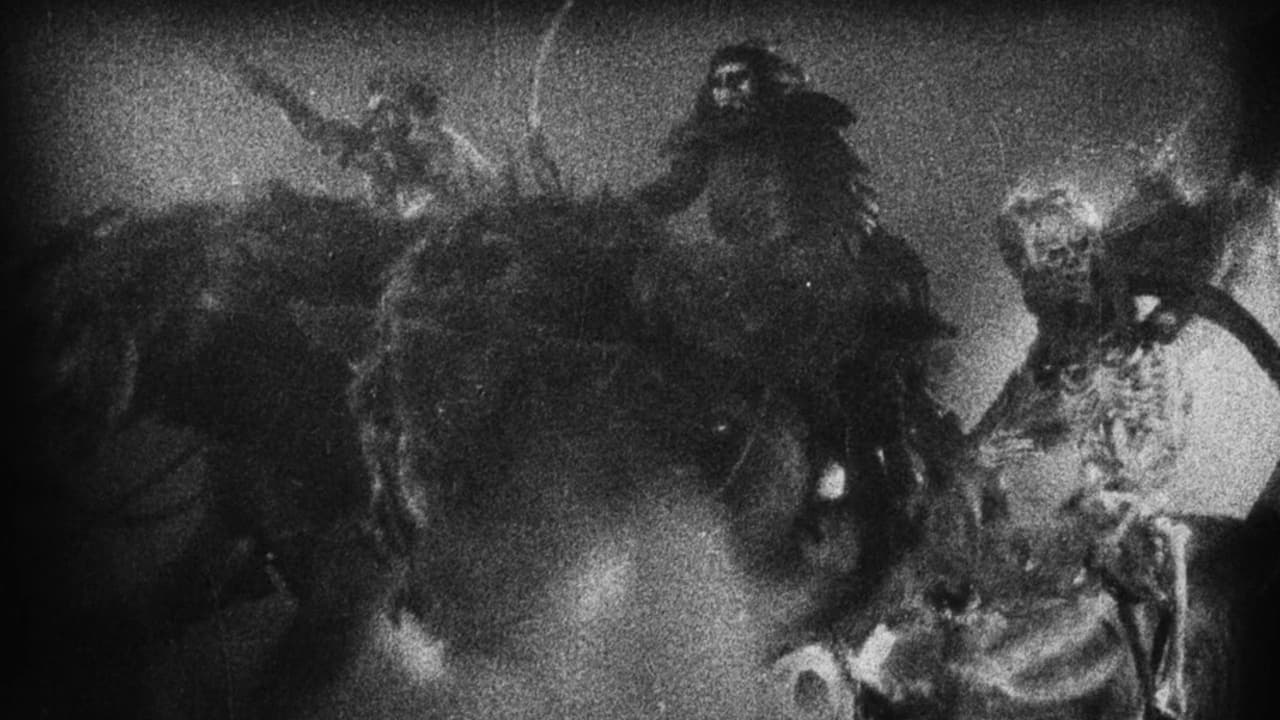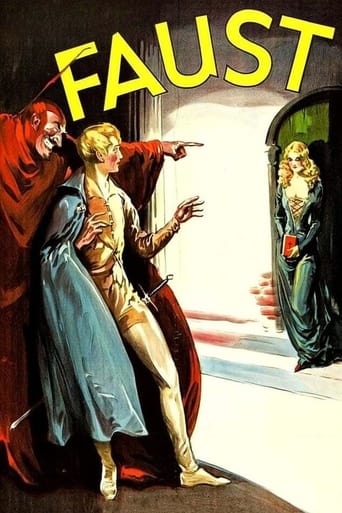

There's actually a funny story behind my viewing of this movie. It started off a week or so ago as I was renting movies and saw the film "Excalibur". A lot of it seemed familiar to me and that was because I forgot that I already reviewed it! I had to watch a new movie every day so I tried watching bits and pieces of this film over a week's span. I finally got the whole thing done today. I was shocked to find out that this film was listed here as being 85 minutes long.The version I saw was 115 minutes long! I now realize I was watching an updated version and I'm certainly glad to have come by that. I always want to see the longest version of a great movie. I thought that I knew the plot to this film. I had actually mistaken it for "The Devil And Daniel Webster". A deal with the Devil is just so common, since the beginning of fiction. From the first two minutes, I knew this was a great movie! We get these wonderful effects showing off Heaven and Hell. Initially, Faust's deal is actually selfless as he wants to help other people. I love how we just keep getting these different scenes of all these different characters. It's hard to keep up with, but it's so beautiful to look at and you can tell a lot of detail was put into the plot. We are taught some interesting things about love and morality. ****
... View MoreA good film for me requires the perfect combination of all of its components (script, direction, production, acting, cinematography, etc.). One single problem can ruin an otherwise great film experience. A simple error in the casting of Michael Corleone's daughter spoiled The Godfather III for me. In Faust, the problem was not Emil Jannings (he's amazingly good in the first half of the film, and one of my favorite actors of all time) but that ridiculous outfit he wears in the second half of the film. I'm amazed nobody has commented on how gay and fat his Mephistopheles looks (nothing against gays and fat people, folks). A fat gay Mephistopheles surely does not inspire any dread or fear. I could barely put up with Jannings and his custom, with its feather and its tail. I also agree that the second half of the film drags. Faust is still an incredible piece of filmmaking, which makes you understand why Hollywood became so interested in Murnau, and shows that Germany (along with the US and Russia) was in the forefront of world cinema at that time. But is also regrettably an example of how details can ruin an otherwise great film experience.
... View MoreFor me, along with Metropolis, The Gold Rush and The Passion of Joan of Arc, this is one of the finest movies of the 1920s. In design and direction especially, Faust is a masterpiece. It has a great story with a strong operatic feel, and the characters are great, Mephistopheles is especially memorable.F.W.Murnau's direction is superb. This is especially true in the duel between Faust and Mephistopheles which defines the term epic in every sense, and part of the reasons why it works so well is the wonderfully malevolent atmosphere that Murnau, Robert Herlth and Walter Rohrig create. The music fits amazingly well and the story despite one or two scenes in the middle that drag just a tad is compelling.The acting is very good. Gosta Ekman does a fine job conveying his character complete with a believable transformation from decrepitude to youth, while Camilla Horn is suitably pure. As the imposing demon Mephistopheles, Emil Jannings with a magnetic appearance and presence steals the film, while he does keep some of his comedic qualities there are times where he is quite terrifying.Other than Jannings' performance and Murnau's direction, what makes Faust such a masterpiece are the expressionistic images which inspired by Casper David Frederich's paintings are amazing, with excellent cinematography and sculptures of smoke, light and steam to compliment them. All in all, a brilliant film and one of the best of its decade. 10/10 Bethany Cox
... View MoreMany people have heard the tale of Faust, which has become ingrained in the collective mind of our culture. A worldly doctor sells his soul to the devil in exchange for any earthly good he could desire in exchange for the loss of any spiritual good he could have. This, I believe, is told from the Goethe angle, seeing as how the tale of Faust is more of a folktale than anything that can be attributed to any one novelist.An archangel and Mephisto, played magnificently by Emil Jannings, make a wager: if Mephisto can tempt and acquire the soul of Faust, a renowned and prestigious alchemist, all of mankind is doomed. The hideous raven-form of Mephisto slinks off to his work....In a truly awe-inspiring image, we see Mephisto spreading his demonic wings over the nameless Germanic town in what is one of the coolest things I've ever seen. This spreads the plague, which devastates the town. Faust sells his soul in order to stop it, but doesn't stop there. Be it wealth or the flesh of the loveliest woman alive, Mephisto will give him any earthly desire after he makes his contract permanent.The story is heart-breaking: a classic tale of good, evil, religion, love, and temptation. I'm not one of your weepy types, but I have to admit I was getting a little misty-eyed at the ending. The acting is awesome across the board, with Emil Jannings stealing the show as the cackling Mephisto. His range of facial expressions boggles the mind! But really, it's the visuals that make the movie memorable: phantasmagoric montages of bizarre and demonic images, just what you'd expect from the director of Nosferatu. A demon engulfing a town in his wings, satanic birds, skeletal horsemen....and others. It's really....really interesting to watch.Murnau may be known best for Nosferatu, but don't skip out on this other gem from the Expressionistic era.
... View More